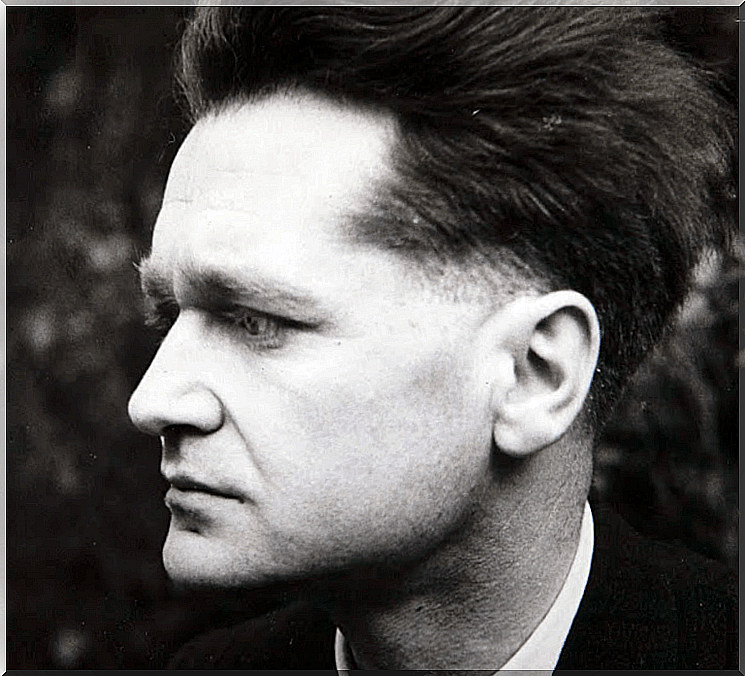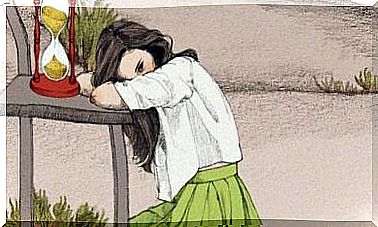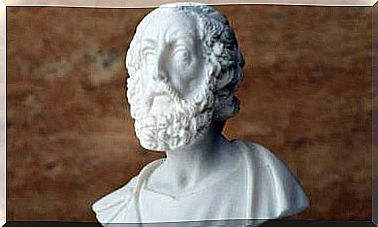7 Wonderful Phrases By Emil Ciorán

There are many phrases by Emil Ciorán that surprise us. Its raw realism and undisguised pessimism are a bucket of cold water for conscience. This Romanian philosopher did not like to beat around the bush and decidedly faced all the aspects he considered worthy of reflection.
It’s clear that the purpose of this thinker wasn’t exactly to lift anyone’s mood. In Emil Ciorán’s sentences we clearly see that he liked to provoke. I loved going against the grain, because that was also a way of denouncing the banalities and inconsistencies of the world in which I had to live.
What is found in Emil Ciorán’s sentences is a deep disenchantment, which ends up being a challenge for light or excessively romantic models of life . The encounter with this thinker causes a certain shock to many people. Check out some of his most remembered phrases below.
1. Some infidelities are not forgiven
This is one of the many sentences by Emil Ciorán, full of intelligent irony and common sense. It goes like this: “The last ones we forgive for their infidelity are the ones we disappoint.”
This is a sharp and profound statement. When someone doesn’t live up to their partner’s expectations, they know that it’s the person who is failing, not the other. Infidelity would be a way to confirm this deficiency. That’s why it ‘s hard to forgive this infidelity: it’s a way of accepting this initial disappointment. A narcissistic wound that hurts deeply.

2. One of Emil Ciorán’s phrases about age
A sense of humor is present in many of Emil Ciorán’s sentences. It’s black, caustic humor. This is what can be seen in the following statement: “What I know at age sixty, I already knew at twenty. Forty years of a long and superfluous work of proof”.
Maybe he’s right. There are many truths in life that are intuited early on. However, youth are not entirely sure what they perceive. A successive chain of proofs is needed, which in many cases does not provide more than an infinite reiteration .
3. Correspondence in missions
Emil Ciorán had no problem contradicting what was considered a productive or successful life. Nor was he interested in hiding the deep disappointment that existence inspired in him. Quite the contrary: it was deep in the wound.
The following sentence says everything about him: “My mission is to kill time, and time, in turn, is to kill me. How comfortable it is to be among murderers.” Death and suicide were present in many of his works. He insisted that existence would only make sense when it was spent, as something that doesn’t serve.
4. Do’s and don’ts
A large part of society is convinced that the most important thing is to do, do and do more. Standing still and being unproductive are true blasphemies. However, after doing so much, we became so restless that anxiety began to invade us.
In light of this, Emil Ciorán said: “We can be proud of what we have done, but we should be much more proud of what we didn’t do. This pride is about to be invented”. Your vision makes sense, but ‘not doing’ has consequences too. In such a compulsive and automated world, they can be positive.
5. The rebels
Ciorán felt a certain contempt for figures of power. As an iconoclast, he never gave much credit to heroism, nor to the great achievements of those who fight in the name of some ideological cause.
His position in this regard is perfectly clear in the following sentence: “Who rebels? Who takes up arms? The slave rarely, but almost always the oppressor turned into a slave”. In this way, he equates the rebel with the oppressor, indicating that both are of the same essence. The slave, as such, always obeys.
6. The hidden
Emil Ciorán did not see the human being as a superior species or endowed with something memorable. On the contrary, on several occasions he emphasized the vile way in which human beings live and populate the earth.
Part of this perspective is reflected here: “Only what is hidden is deep and true. Hence the strength of vile feelings”. In other words, the human being hides his vile feelings and, precisely because of this, they emerge with greater force when they appear.

7. The suffering
Although Ciorán was not happy and has expressed this fact on numerous occasions, he was also not a “sufferer”. More than feeling pain for life, or for the experiences he accumulated, what he did was to reveal the inconsistency using irony, adopting a style appreciated for the singular.
Therefore, it is not strange that he was critical, even in relation to the subject of suffering. On this subject, he stated: “Suffering is the way to be active without doing anything”. In other words, those who suffer live in the midst of a storm, inactive, without putting into practice any coping strategy that will reduce it.
There are many other phrases by Emil Ciorán that are quite interesting and that were left out of this selection. Reading Emil Ciorán, despite the somber tone he uses to deconstruct reality, is a delight as a stimulus for reflection.









